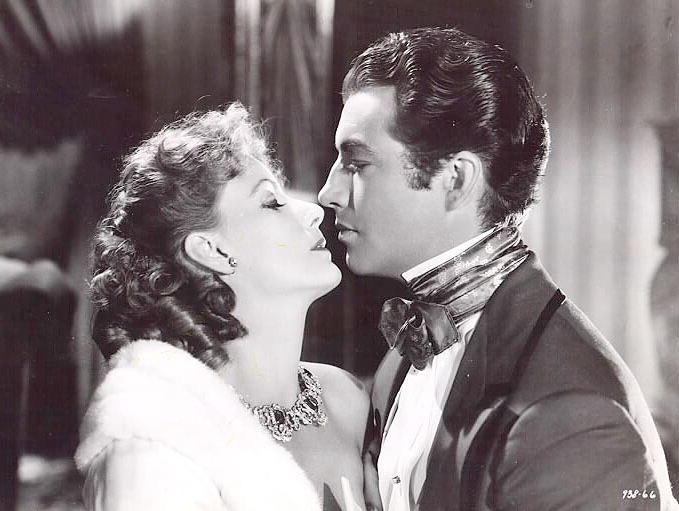“She writes like you, Josh. You’ll probably fall in love with her.”
That’s how I met Mackenzie.
A friend had shared one of her essays. My heart jumped. It doesn’t often do that.
I hardly slept that night.
In October of the previous year, I’d gone into the desert seeking clarity. After fasting for four days and wandering through wilderness, I’d emerged with one, solitary vision: I had dreamed of a woman.
I knew only a few things: I’d not met her before, I’d know her when I saw her, and her name was Mackenzie. I also understood—if dreams are to be believed—that she would play an important role in my life.
I went months half-believing in such a romantic, prophetic reality; by spring I’d mostly forgotten all about my desert visions. Until that fateful introduction one night in April.
This Mackenzie lived a hundred miles away, and we had no mutual friends, but I knew I had to meet her. Bold and brazen, I sent the most overtly direct message I’ve ever written.
“I know this sounds crazy, but I think I have to meet you. I think our hearts speak the same language.”
Around us, society was descending into chaos as people the world over grappled with the baffling impacts of a global pandemic.
“I’m wary of guys who say we’re supposed to meet. But this is quarantine. Tell me about you.”
Days passed. We wrote back and forth in a scant but consistent volley of sentiments both deep and shallow.
I wrote her novels of my life and whims, determined to pique her interest as her writing had mine. She mostly responded in brief. But she kept responding, so I kept writing.
“You understand how strange this is?” she asked one night.
“Absolutely.”
“Here’s my number.”
And so it went. We flowed from the beginning as though we’d been married for years.
Was our ease and comfort born of chemistry, or was something larger at work? I pondered this question more times than I could count.
I began to learn more about her. What I couldn’t gather from our conversations, I learned from her writing. But the more I learned, the less like my ideal partner she seemed. The more about her I discovered, the more apparent our differences became.
She was a well-to-do socialite in another city. I preferred the company of mountains to the bustle of town. She kept herself painfully over-involved in matters of high social importance. I looked for reasons to avoid happy hour. In past relationships, these differences in posture had been deal breakers.
I began to question the validity of mystical visions. Logic shot judgmental glances at my heart’s youthful innocence as though to chide, “This won’t end well.”
But hearts are stubborn.
“When do I get to come up so you can play me your songs?”
“How about Thursday?”
Still in the depths of a state-wide lockdown, our plans and conversations allowed us each a reprieve from the arduous chaos of modern life. The sweet simplicity of our curious excitement became a beacon of hope in a dark and uncertain time.
Though logic seemed intent that no happiness could be found with Mackenzie, I was tantalized by the possibility that I had dreamed a woman into being.
I awoke on the morning of our Thursday to 12 inches of wet, spring snow. Understandably, she wasn’t comfortable driving three hours through treacherous weather to meet some stranger who believed in fate.
“I like driving in snow—I’ll come to you instead.”
I left early and braced for a long journey but discovered the roads to be quite passable. The storm, perhaps, had merely been testing my commitment.
As I made my way south, I pondered what could’ve possessed me to drive hours to meet someone I didn’t know, much less in a blizzard during lockdown. Was I onto something here, or was I just a romantic?
I laid my worrying mind to rest in the purgatory of half-truth. If nothing else, this was an adventure; I love a good adventure.
We spent our afternoon driving through the mountains and talking endlessly. In the beginning I told her, “I think our hearts speak the same language.” The more we talked, the more I believed it. Our lives may have looked different, but in her presence I felt immensely peaceful.
“Everyone likes me on paper. But nobody really likes me for me.”
A high-profile woman, she often attracted men who liked the idea of her. They liked her status, aesthetic, and swagger; mostly they liked what she did for their image.
She began to imagine that perhaps I was the same. Not because of anything I did or said, but because sometimes trauma and pain speak more loudly than truth.
And the truth was bizarre. What had attracted me to her had nothing to do with who she was at all. I had dreamed her, I had found her to resonate with my soul, and I had driven through a snowstorm to meet her because somehow I believed that I’d know her if I saw her.
She cooked for me and we sat beside each other at her farmhouse table, eating pasta in the candlelight.
I bid her farewell at 8 o’clock. As I walked to my truck, I felt a strong tug from the center of my stomach.
“This doesn’t feel right. I shouldn’t be leaving.” The thought was like a lightening bolt which, for a fleeting moment, illuminates the suffocating darkness around you.
Thirty miles down the road, I discovered that whether I wanted to go home or not, I probably wouldn’t make it. The storm had intensified, making the journey feel more like a stacked game of Russian roulette than a proper adventure. I pulled off the highway.
“Roads are bad. Can I crash on your couch?”
“Of course.”
When I arrived, I tried to make myself small so as not to intrude. I had no intentions of anything romantic—I was there for tactical reasons.
I sat down on the couch and picked up a book.
“What are you reading? Stop. Read me.”
Surprised by her directness I looked up at her and really saw her for the first time.
She was radiant, beautiful, and locked on me.
The truth was, Mackenzie seemed so different from the woman I thought I wanted. I’d left for her house after dinner, at a gentleman’s hour, intent on finding emotional clarity by way of logical thought.
But she and the storm seemed to have other plans for the two of us. This would not be the transactional sharing of space I had imagined.
We spent that night dancing in an intimacy, which felt more like home than seemed justified by our extreme newness. Morning broke late and dreary, and found us asleep together, still wrapped up.
I had requested her, but she had demanded me.
“The storm sent me back.” I told her.
“You were never supposed to leave.”
Two weeks later, we broke up.
I am a fierce defender of my own needs, having spent five years sacrificing them to my previous marriage. Following a foundational disagreement, I had decided that, in fact, I did not like Mackenzie on paper.
I am a romantic, but I am still a man. Without the anchor of her presence, I had found the laborious surrender to fate unjustified.
She was a grounded woman and conceded that we probably weren’t a great fit.
But I awoke a few days later to a message from her sent at 3 a.m.
“It’s as though you roused me from a deep sleep, and I have finally awakened to find that you’ve left.”
Her words pierced the impenetrable shell of my pragmatism and landed in my soul.
“I think our hearts speak the same language.”
“We shouldn’t work.”
“No.”
“But ever since we met I can’t stop thinking about you.”
The truth was, I hadn’t stopped thinking about her either. Not even for a moment.
The same brazen faith with which I had driven into blinding snow a few weeks prior, implored me to set logic aside and listen to the whispers of my heart.
I didn’t know why, but I wanted her fiercely. Perhaps I had still needed more reasons to believe. This time, though, fate spoke to her, and it was she who reached through the veil to advocate for the inane plausibility of star-crossed love.
“I think our hearts speak the same language.” It didn’t seem enough to hold us together, but maybe there was more to it than I realized.
Perhaps relationships have not been as I always thought.
I have always understood love to bloom from a place of mutual interests. I’ve assumed that shared passions and material compatibility serve as the fertile soil in which trust and vulnerability may eventually take root.
But Mackenzie and I started with trust and vulnerability. We didn’t lean on mutual friends or common social environments to facilitate our learning of each other. We looked less to our shared interests to foster our love and more to our love to give us time to discover shared interests.
And though I believe in the merits of logical thought, I also find the concept of fate to be strangely comforting.
I had dreamed of a woman, drawing her from the sands of the desert, and she had turned out to be real.
The storm, which threatened to keep me from meeting her on Thursday morning had also made certain that I ended up in her arms by Thursday night.
And when my faith had faltered, she took up the burden of believing, so that I would see that love is a torch carried by two hands.
As we continue to walk, admiring with playful reverence the rivers of our differences and the fortitude of the beds that carry them, one factor alone seems to outshine the rest.
Our hearts speak the same language.
~











Read 7 comments and reply